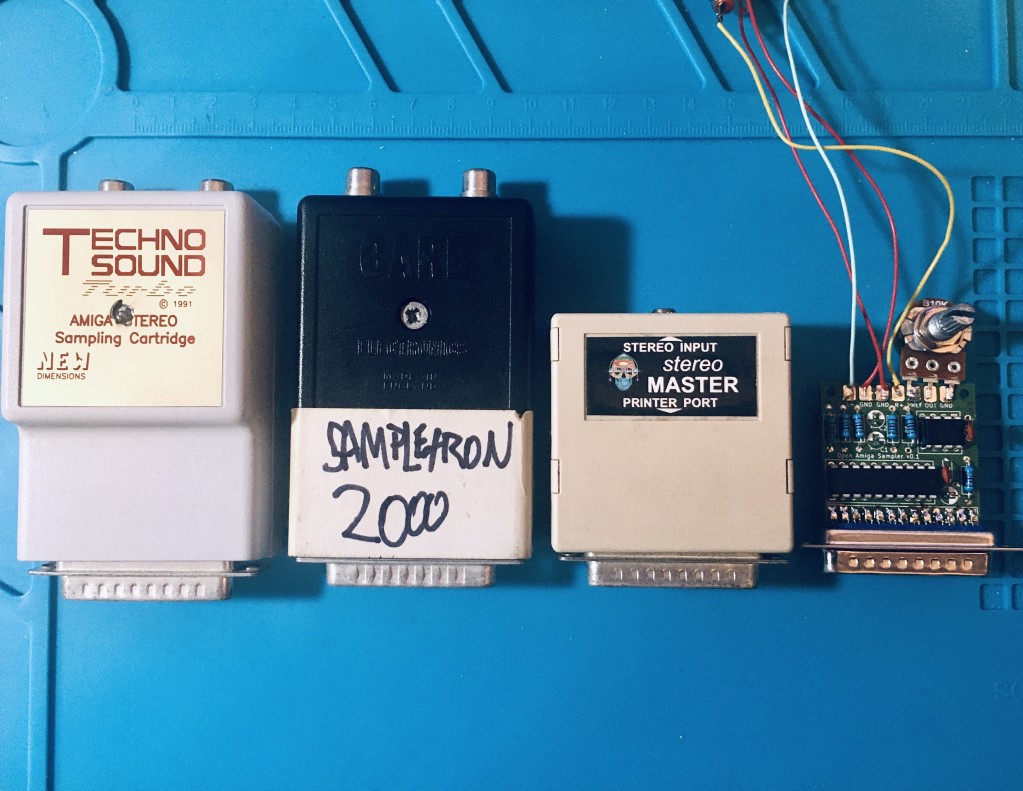There’s a new, open-source sampler – for the Commodore Amiga. Yes, as in you’ll be building your own DIY cartridge to run it. Brace yourself – 90s. Music. Incoming.
That may sound ludicrous. Okay, it is slightly ludicrous. But there is still a fair bit of AMIGA hardware floating around. Having a reliable DIY solution means you can a) build the cartridge affordable, and b) take steps to avoid frying the cartridge and the hardware. (You’ll want to RTFM on the project site before you get started.)
As the creators say:
Up until a few years ago, if you needed an 8bit sampler cartridge for your Amiga you’d usually ask on a forum and quickly get a response from somebody either willing to sell theirs for some small amount, or even send one to you for free. But something’s happened to Amiga hardware in recent years…second-hand prices have exploded, parts have become more scarce, and it’s getting harder and harder for those of us who still produce Amiga music – in the demoscene, in the chiptune scene, and even professionally in the games industry – to maintain our equipment or ensure that it’s possible and affordable for newcomers to add the Amiga to their music production toolbox.

What you get is a distinctive, mono sampler you can run on a vintage computer for all your chip music needs.
Also worth noting – they used Teensy hardware to test as they developed this, so as to avoid that whole Kentucky Fried Amiga problem.
There is a huge drop of documentation and explanation – including full explanations for anyone who’s entirely new to this scene.
https://github.com/echolevel/open-amiga-sampler
It also works with a lot of software, including legendary examples like ProTracker.
Also plenty of interesting stuff happening on the Echolevel YouTube channel:
Still not sold? Maybe this will help?
Or….
And there’s new stuff happening, too, like this fantastic jam that just showed up on Synthtopia.
This looks useful, too.